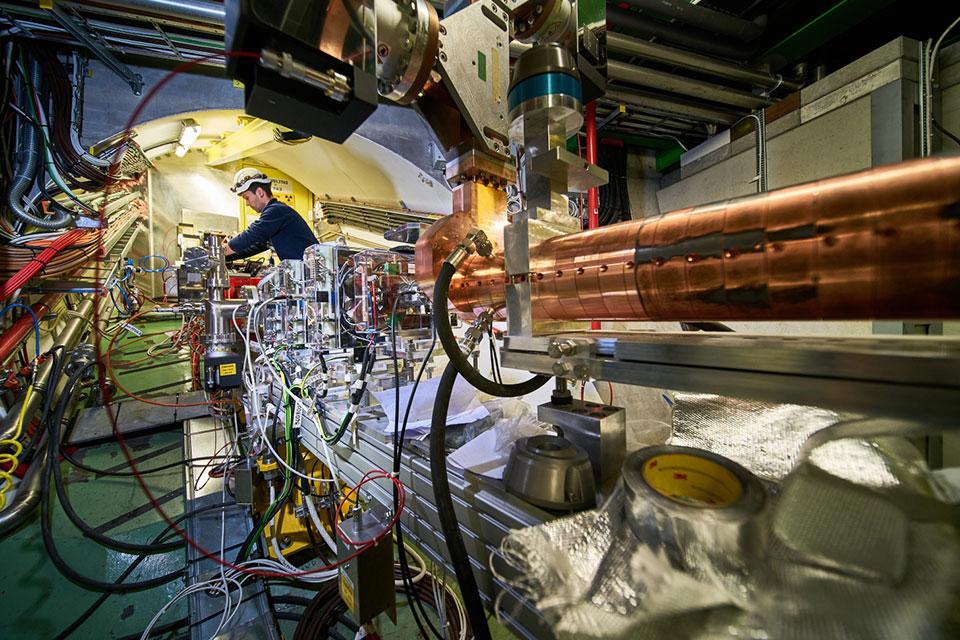The John Adams Institute (JAI), part of the Department of Physics at Oxford, is one of the beneficiaries of a major award from the Science and Technology Facilities Council (STFC) to support the participation of UK institutions in the AWAKE experiment at CERN.
The purpose of the AWAKE experiment is to demonstrate a new method to accelerate electrons to very high energies. The new technique, called proton-driven wakefield acceleration, takes advantage of the strong electric fields created in the wake of a proton beam travelling through a plasma. These fields can have gradients of up to 1,000 times higher than the fields that can be achieved in conventional radio frequency accelerators, potentially shortening the length of the machine by a similar factor.
The first phase of the AWAKE experiment has already demonstrated the merits of the scheme with the successful acceleration of a bunch of electrons to 2 GeV in 10 metres of plasma driven by a 400 GeV proton beam. The second phase, which is already underway, will seek to upscale the technique to bring the electron energies closer to the range where they can compete with conventional colliders.
The UK is a major participant in AWAKE, making leading contributions to the beam line design, diagnostics to characterise the initial and accelerated beams, and development of a plasma cell scalable to over hundreds of metres and the associated diagnostic systems. The £4M award from STFC, of which over £1M comes to the University of Oxford, will support the UK contributions to AWAKE Run 2 with the development of a new electron injector, a new plasma cell, and several new diagnostic tools.
The University of Oxford JAI group, led by Professors Philip Burrows and Peter Norreys, is designing, in partnership with CERN, the new AWAKE high-energy electron injector beamline, as well as a novel beam position monitor system based on Cherenkov diffraction radiation, for measuring both the ‘drive’ proton and ‘witness’ electron beams.
Professor Burrows, JAI Director, says: ‘The announcement of the new award is great news for the AWAKE-UK collaboration. AWAKE is a world-leading experiment that has already accelerated electrons to 2 GeV via the novel wakefield technique. Moreover, via the improvements we are making for Run 2, we aim to do ten times better! This is a fantastic opportunity for our students and postdocs to be at the cutting edge of particle-accelerator technology.’
The UK contingent in AWAKE comprises the universities of Lancaster, Liverpool, Manchester, Oxford and Strathclyde, as well as Imperial College London and University College London.
To find out more about the project, visit: www.awake-uk.org/

